Maestro Paavo Järvi talks Paris, Estonia, Russia and music with Estonian World
Estonian world
Adam Garrie
14 January 2015
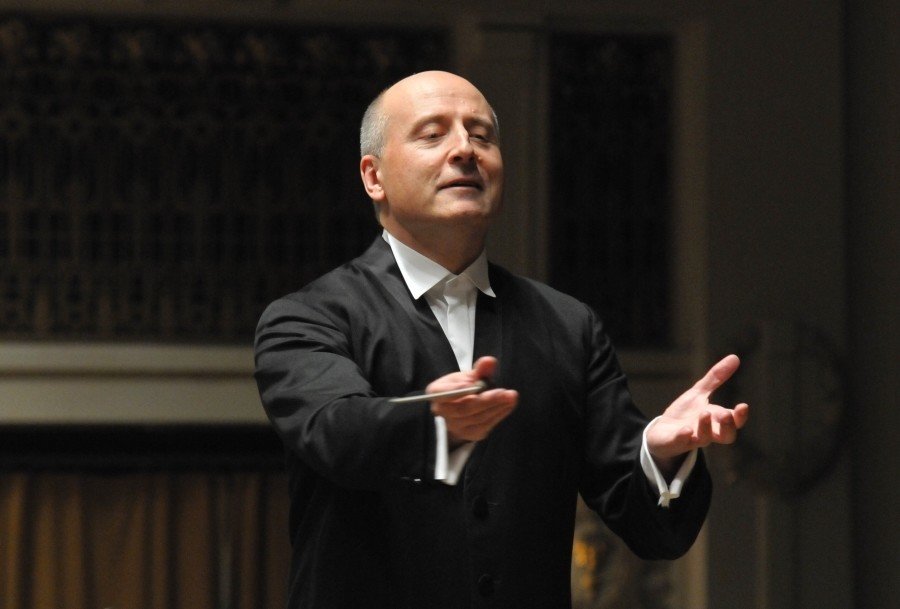
Cover: Maestro Paavo Järvi at Prague Spring Festival/Photo by Zdenek Chrapek.
http://estonianworld.com/culture/maestro-paavo-jarvi-talks-paris-estonia-russia-music-estonian-world/
Adam Garrie
14 January 2015

On the eve of conducting the opening concerts of the new Philharmonie de Paris, Maestro Paavo Järvi found time to speak to Estonian World about the new hall in Paris, as well as Estonia, Russia, and music.
As Music Director of the Orchestre de
Paris, one of the main resident ensembles, renowned Estonian conductor
Paavo Järvi conducts the opening gala concert at the brand new
Philharmonie de Paris building in France.
Celebrations begin with the inaugural
gala concert on 14 January, when Järvi and the Orchestre de Paris are
joined by soloists Hélène Grimaud, Renaud Capuçon and Matthias Goerne.
Commissioned especially for this opening, the programme includes the
world premiere of French composer Escaich’s Concerto for Orchestre. The
long-awaited new concert hall in Paris, designed by the award-winning
French architect, Jean Nouvel, will be inaugurated by French President
François Hollande.
In advance of the opening, Estonian World spoke to Maestro Järvi about Paris, Estonia, Russia and music.
So, first of all, the new Philharmonie De Paris is opening this week and you will be leading the opening concert. What programme have you selected for the evening?
It’s an all French program and they’re
all chosen, sort of, to showcase, if that’s the right word, different
areas of French music – French repertoire. We are starting with a funny
piece by Edgar Varèse called Tuning Up. It is a piece where everybody
goes on stage and pretends to start tuning [the instruments] but the
tuning itself is already a piece and it’s kind of a witty and slightly
symbolic piece, because it will be symbolic to the hall fine-tuning for
the first performance. It was written for “Carnegie Hall” – the film –
and it was never used, because it was too modern and too quirky. It was,
I think, the only time Varèse did something for a film or had some
involvement with Hollywood.
The second is going to be Dutilleux’s
“Sur le même accord”, a little violin piece written for Anne-Sophie
Mutter in the eighties and here it will be played by Renault Capuçon.
Next is going to be four selections from
the Fauré Requiem, to show a more romantic and vocal side of French
music. We will have our chorus of the Orchestre de Paris, with Matthias
Goerne, perform it.
After that we will have a world
premiere, it wouldn’t be right not to have one on an occasion like that,
by Thierry Escaich, a composer who I consider maybe one of the most
interesting composers of the younger generation, well, the middle aged
generation really. He’s a wonderful living composer, a French composer
and also an organist. It’s a piece called Concerto for Orchestra and
it’s 30 minutes long, a big and very involved piece.
We will finish with Ravel’s “Daphnis et Chloé, Suite No.2” performed by our chorus, as well. Did I mention Hélène Grimaud?
Oh, sorry. Hélène Grimaud, in the first half, will also play Ravel’s Concerto.
So it’s a very long programme you’ve put together.
Yes, it’s kind of a gala program, trying to sort of show a little bit of variety in the French repertoire and French soloists.
There’s been a lot of controversy about the new hall. One of the reasons being it’s not in the centre of Paris and a few other things. Have you been involved in that at all or have you stayed neutral? What’s your view on that?
To be honest with you, I think that
whenever there is something that major and massive being built – and
this is a huge, expensive, grand undertaking – there are always going to
be positive and negative sides to it. There’s always going to be
controversy and polemics but that’s the way it should be, I think it’s
important to discuss and voice opinions.
The upside is that it’s a new hall and I
can now say it’s a wonderful hall from the point of view of acoustics
because yesterday we were there for the first time on stage with the
hall full of people and it is a big success acoustically. The downside
of it is that it is not in the centre but on the other hand it is still
in Paris and it is in the Cité de la Musique, which is the kind of a
vision that Boulez had at one point – to create a city of music with a
new music centre. That kind of completes that mission, so the idea is
not new and I think in the best-case scenario it will rejuvenate this
area and recreate it as an artistic centre.
How willing are the hard-core,
mainstream, classical music lovers to follow and make that journey every
week, to something which is about 45 minutes away from the centre,
remains to be seen. But today, standing right now, at the brink of
opening a new hall I think all of these discussions are pointless and a
thing of the past. I think today the things we need to celebrate are the
facts that we’re opening it, the acoustics are good and it looks
absolutely sensational. Inside it has one of the most attractive halls
I’ve ever been in and that includes all the great new halls I’ve
recently conducted in: Los Angeles Walt Disney Concert Hall, the classic
old-new hall Berliner Philharmonie, which is maybe one of the best
examples how a modern hall can become great, despite its unorthodox
design and appearance. So today, I think, all these discussions are a
thing of the past. It is pointless because we are literally opening it
tomorrow night, it’s done. It remains to be fine-tuned, we need to learn
how to play in it, because we need to get used to it but it is a huge
success.
Turning to various musical approaches. Two of my favourite recent cycles of symphonic works have been your Beethoven and Bruckner, which were recorded over a long period of years.
You’re just biased. (Chuckles.)Well, no, I’ve enjoyed them both. But what I did notice is you took a very different approach, I would say, to the two cycles. Obviously different composers but two of the great symphonists of the 19th century. Did you consciously take a different approach to the two composers?
I do. I make every decision completely
consciously because I think that Bruckner and Beethoven were both in
their own way in the need of a re-evaluation in one way but of course
re-evaluation cannot happen in the same way. What Beethoven, I felt,
needed is something that works for him and something else works for
Bruckner. Bruckner is not helped by historical point making. There is a
very fine line between the academic lessons of how things used to be and
also listening to the piece itself and how the evolution from Beethoven
on has affected Bruckner. I never was out to go on stage trying to make
a point; I always try to see what the music tells me and try to listen
to it. Because when you listen hard enough, it will tell you exactly
what it needs. Of course it’s very subjective, different people hear
different things and that’s why we still play these pieces, to have a
different point of view. I find that over objectifying Bruckner doesn’t,
in the long term, do him any favours. I think there’s a very fine line
between following the historic or the hip, as we call it, historically
informed performance practice and allowing the use of artistic license.
At the end of the day with all the scholarship and all the historic
analysis one does, you have to trust your personal intuition and inner
direction.
Yes. So going on from that, do you think, for you, there would ever be a possibility of exploring Beethoven in this more modern, less hip, sense? Or do you think Beethoven, at this point, only works in a more focused, more historically informed, steady context?
I think Beethoven, in a strange way,
works convincingly in a very old fashioned, I mean in a romantic sense.
And it can be very historically informed. The success of a Beethoven
symphony depends on the strength of the personality of the performer. I
find it difficult to listen to the modern romantic performances because
they simply are not convincing. On the other hand I listen to
Furtwängler and I’m very convinced. And yet it is kind of a romantic
approach but somehow something about that personality, the way he
manages to keep the tension and intensity, works. So I think there’s no
right or wrong. For me personally, I don’t think I can go back to sort
of Bruno Walterish approach to Beethoven but I wouldn’t say it’s wrong.
I see. So it really is more about the personality than, saying that one style is superior to the other?
I think so.You are also, in addition to conducting, known for your sense of humour, your online posts, which many people read. Do you think, to quote Frank Zappa, that humour belongs in music, in classical music in particular?
Absolutely. Life without laughter would
not be worth living. In so many cases it’s the only thing that allows us
to see absurdity and relax, to look and laugh at ourselves. One of the
healthiest and most important things is the ability to laugh at yourself
and to see how absurd this world is. Laughing at others is not that
important. I have two children who are 8 and 10. If there’s one thing I
could give or pass on to them, being constantly away from home, is the
ability to laugh, to have a sense of humour, to see the absurdity of
life. It is actually still startling, to take a step back and look at
what’s going on around you and see how absurd life really is and how
difficult would it be to bare any of this nonsense, without being able
to laugh at it.
I will have to agree with all of that. We are from Estonian World and I would like now to turn to the music scene in Estonia. I was wondering, as of now, what do you think the condition of music is in Estonia? Is it healthy? Is it leaving much to be desired? On top of that, where are the strengths in Estonian music right now and where is there room for the most of improvement?
I think all in all, the musical life in
Estonia is in very good shape; it’s very healthy. I like the fact there
are a lot of strong personalities who are creating their own thing. I
like people who are creating their own festivals, who are creating their
choirs, who are creating new music ensembles. I like people who are
creating festivals of various directions – opera festivals, new music
festivals, vocal festivals and so on. I am impressed by the ingenuity
and also the will to be creative and to fight for things that they are
interested in and believe in. There is a lot of energy. I must say –
although I am always cautious when praising politicians, because it is a
type of activity that can lead you in wrong and unpredictable
directions – I feel Estonia is still a country that is doing extremely
well when it comes to politicians supporting and understanding the
importance of art. Within their own constraints, budgets and
possibilities, they still support Estonian artists, festivals and
orchestras. I really want to encourage this, because it is, whether we
like it or not, our number one calling card to the world; it is Estonian
art, music and especially classical music.
Do you have any plans to do any major projects in Estonia in the near future?
The main project, and it is probably the
closest to my heart, is the Pärnu festival that I’m doing every summer,
we are doing, I should say because it’s a very collaborative effort. I
am the artistic advisor. The conducting course that is called Järvi
Academy has been going on for four or five years now and it’s really
gaining momentum. We have a very international following and there’re a
lot of people taking part. You can see some good, young conductors
coming out of there; in fact, one is my assistant here in Paris, a young
French conductor, who I first saw in the conducting course in Estonia.
So this is something I definitely want to continue and see flourish.
What I wanted to make you aware of is
something we did last year, a rather scandalous performance with the
Estonian national orchestra, where I was also an artistic advisor and
have been for many years. It was a whole evening of Shostakovich
cantatas. He wrote three of them. One of them is an absolute masterpiece
called “The Execution of Stepan Razin” and the other two are very
Sovietic cantatas – “The Sun Shines Over Homeland” and “Song of the
Forest”. We played them last year and the record is coming out from
Erato Records this April. This is something I hope you will get a hold
of because it is exactly this duality which is so important to point
out, especially in the light of what is happening in Russia at the
moment; of how great artists in Russia, in order to survive and do their
thing had to play a double game, like a lot of great artist are doing
it now.
Shostakovich, Oistrakh, Rozhdestvensky,
Rostropovich and you name it; all of them did the same thing, they had
no other choice. It is very interesting to see all those three cantatas
under the same label, on the same record, because you see the two
extremely opposing sides of the great genius composer. When I was in
Estonia, it got so out of hand that I actually had to have a bodyguard
with me because the local papers started publishing articles about me
praising Stalin in my concert program. It was because the lyrics in one
of the cantatas were praising Stalin but during the Brezhnev time, the
texts were changed so that Stalin’s name was not mentioned. I put all
the original lyrics back together with the absolutely incredible and
absurd twists, which were cleaned up after the regime change, so you get
something really scary.
Then comes the cantata of Stepan Razin,
which is kind of a critical view of the Soviet regime, looking through
that historic precedent. It is a very interesting thing. By the way, so
that you know in April I am having the 7th symphony of Shostakovich
released in pentatonic scales, with the Russian national orchestra. So
it’s going to be a month of Shostakovich and both records very much
reflect what is going on politically in Russia now, because the 7th
symphony has also nothing to do with the German Nazis, it has more to do
with the Soviet Nazis. If you are interested, look it up when it’s
released in April. I am particularly proud that one of them is coming
out from Estonia with all Estonian choir and orchestra, although we do
have two Russian artists.
Can I just ask you from the perspective of orchestral technique, do you find working with Russian orchestras significantly different than the main European ones, whether it’s Paris, Frankfurt or anywhere else in Europe?
I have only worked recently and
regularly with two Russian orchestras. One is the Mariinsky theatre
orchestra, which is absolutely excellent, and the other is the Russian
national orchestra in Moscow, usually conducted by Pletnev, which is
also absolutely excellent. But we have to keep in mind that these
orchestras are cream of the crop, they are the two best in Russia. It is
hard for me to compare them with the rest of Europe. These two
orchestras have an exceptionally strong string quality.
The Russian string school is the best.
Even though a lot of people are lamenting that it is disappearing, it’s
not really. The best string playing in Russia is still excellent, the
type of sound they produce and the technical clarity is something that
is still there. And if you listen to English string playing, it’s yet
another thing because there’s efficiency and clarity but the concept of
sound is less warm. Basically it’s more efficiency rather than sound
oriented and it has something to do with their vast repertoire, they
have simply found this kind of a generic sound for everything. And I am
not saying it is a bad thing, I’m just saying there is a certain
acceptable string sound that they play Debussy with, as well as Wagner
and it sort of fits both but it’s not ideal.
If you look at the Berlin philharmonics
or, better yet, Dresden or Gewandhaus, it’s obvious they cannot play
Debussy but they can play Wagner. So there is a certain reality to
bigger cities where they have no choice but to be masters of many trades
and while in the old established orchestras, including Russian
orchestras, they still very seldom play any other music than Russian,
frankly. Only with an exception of maybe Gergiev’s orchestra which
actually plays a lot of different things because of the rather
interesting and eclectic personality of Gergiev, who goes into various
styles and eras of music.
And the Russian brass, traditionally they’ve been famed for very heavy vibrati, almost continually, is that still a tradition today?
I must say that the type of brass
playing I heard in Russian national orchestra was excellent. They didn’t
have this abrasive, typical Russian brass sound that you would hear
from old soviet recordings or even Stravinsky recordings, anymore. But
there is still an edge that makes for a very distinct colour of sound
and I like it, specifically in the music they specialize in.
Finally turning back to France and particularly to Paris. Unfortunately Paris was in the news last week for something other than music – the attacks that we all saw there. I was wondering if you and the orchestra are doing any kind of memorial for that or how that might be addressed?
It is obviously… We are in the middle of
this incredible moment in history where, you know, in the centre of
Paris there are targeted killings by Muslim extremists. I mean, this is a
kind of a game changer if one can say that things will never ever be
the same, a little bit like after 9/11, where certain truths need to be
rethought and certain realities will never be the same. I think the real
politics happening in the real world as opposed to our world, the
musical world, are interconnected in one way but of course they are so
much different and all we can do is to be aware and voice our opinions
and certainly we are dedicating, and right away the president of France
who is coming, declared that the opening of the new philharmonic will be
dedicated to the victims of this catastrophe, this event. Obviously
everything now is associated and connected to the shootings.
Yes, I see. Well, hopefully this new opening will bring some light and some more optimism to what’s not been the best of times at all for Paris. Again, maestro, thank you so much for sitting down with me and Estonian World and I wish you all the best of luck for the opening.
Thank you very much!Cover: Maestro Paavo Järvi at Prague Spring Festival/Photo by Zdenek Chrapek.
http://estonianworld.com/culture/maestro-paavo-jarvi-talks-paris-estonia-russia-music-estonian-world/
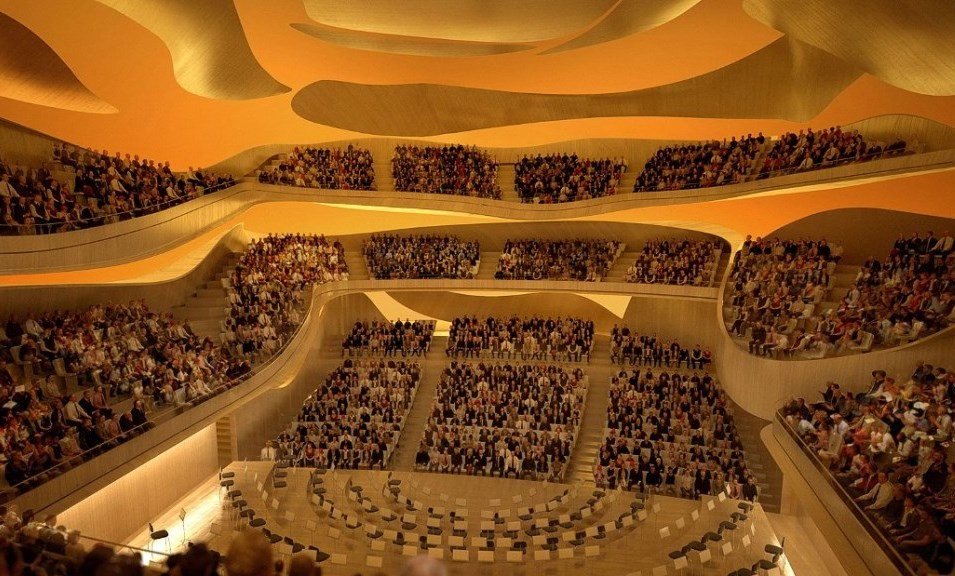

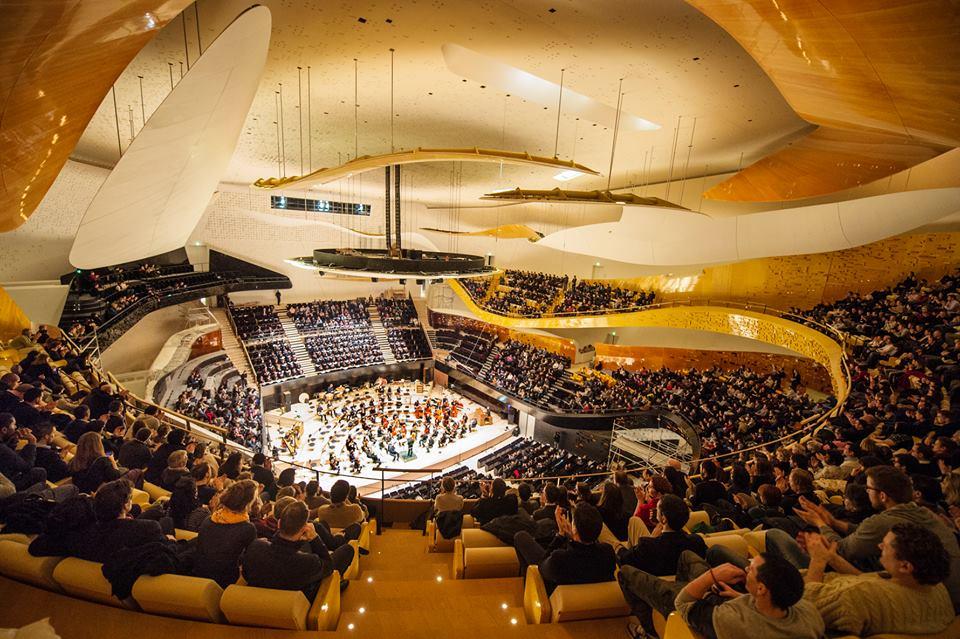

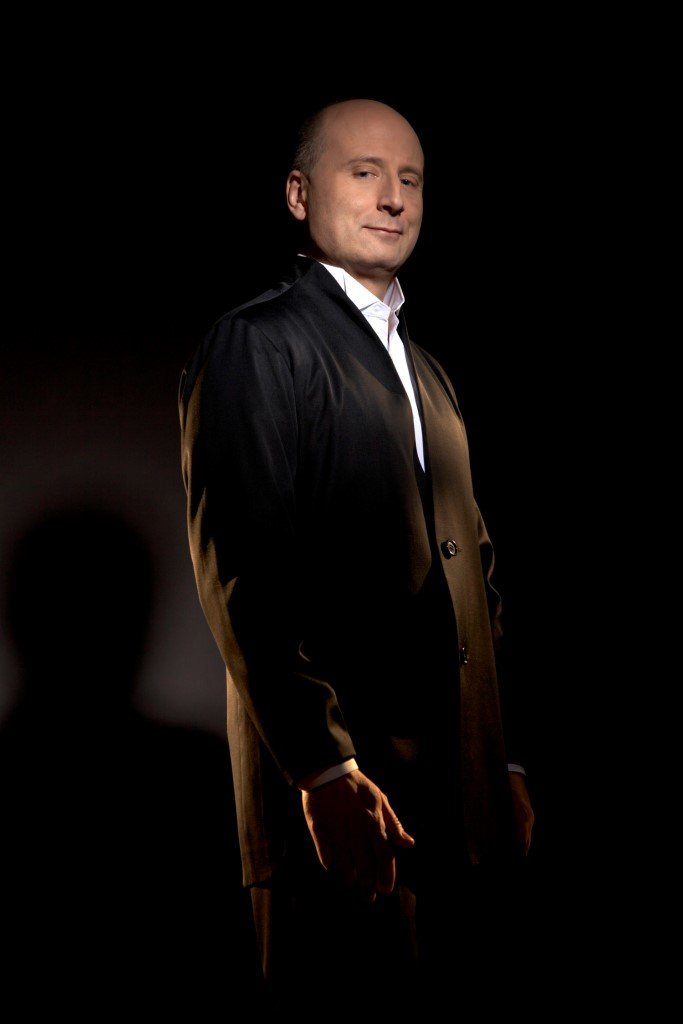
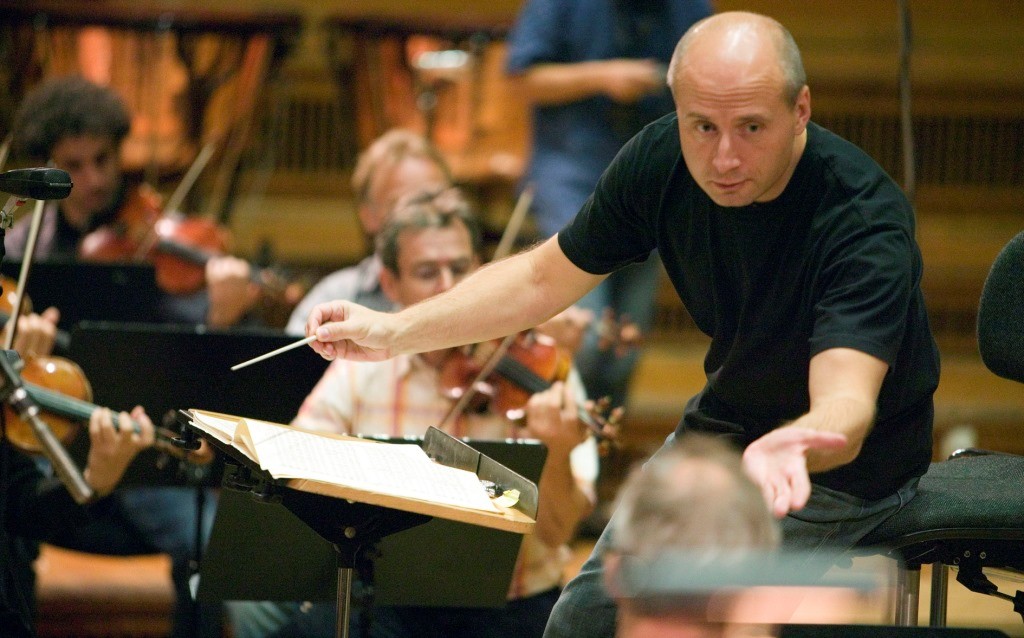
Comments